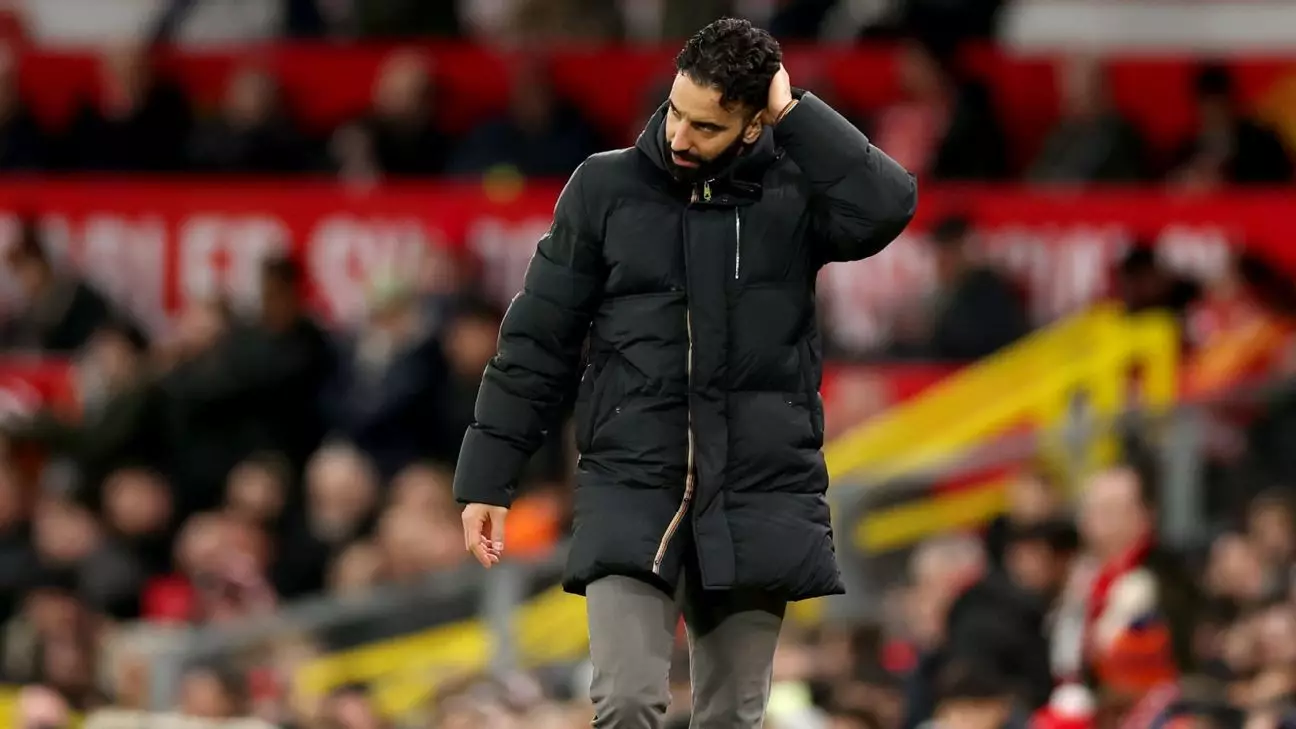As 2025 unfolds, Manchester United finds itself wrestling with the specter of underachievement, currently positioned in a precarious 14th place in the Premier League standings. Despite this unfavorable start to the year, head coach Ruben Amorim has expressed enthusiasm for the future, emphasizing the potential for improvement as he affirms his commitment to the club’s long-term vision. United’s tough defeat against Newcastle United, compounded by a streak of losses that marks a historic low for the team, raises questions about the path forward amidst criticism and uncertainty.
The club’s recent performances echo troubling historical patterns, reminiscent of the team’s struggles in 1962 when they faced similar consecutive defeats. Amorim’s tenure is now marked by a pressing need for results, as fans and stakeholders increasingly voice their concerns about the looming threat of relegation. The coach himself has acknowledged these fears, candidly noting that the prospect of falling into the relegation zone is all too real for his side.
Amorim’s predecessor, Erik ten Hag, was dismissed in October, signifying an urgent need for a turnaround. The team’s inability to find form has seemingly weighed heavily on the players, who must adapt to a new tactical framework in a high-pressure environment without the benefit of a proper preseason. This transitional phase could be crucial in determining not just the course of the current season, but the club’s identity moving forward.
At the heart of Manchester United’s current plight lies a significant shift in tactical approach. Amorim has opted for a 3-4-3 formation, which, while ambitious, has proven difficult for a squad accustomed to a different style of play. He candidly acknowledged the challenge, stating that the players are struggling to adjust after spending years in a contrasting system. This transition raises a key question: Can a team rewire itself in the midst of a fierce competition without foundational training?
Despite these challenges, Amorim remains steadfast in his approach, emphasizing the need for persistence. He recognizes the challenges faced by the players in maintaining focus and understanding during matches, particularly after conceding goals. The absence of a solid base, built over time through dedicated training, appears to be hindering the players’ performance, as important tactical nuances are faltering when pressure mounts.
Looking Ahead to the Challenge
As United braces for a daunting match-up against league leaders Liverpool, the need for a strategic revival and psychological resilience cannot be overstated. This match represents a crucial turning point and could either serve as a springboard for recovery or exacerbate the team’s ongoing struggles. Amorim’s optimistic outlook may be a double-edged sword; while it fosters hope, it also necessitates tangible results to keep faith alive among supporters.
Ultimately, the days ahead will test Rubén Amorim’s skills as a motivator and strategist. With passionate supporters advocating for success, the future trajectory of Manchester United hinges on his ability to harmonize the team’s tactics with their intrinsic capabilities amidst adversity. The road ahead is undoubtedly fraught with challenges, but Amorim’s vision could be the light leading to a much-needed renaissance.

